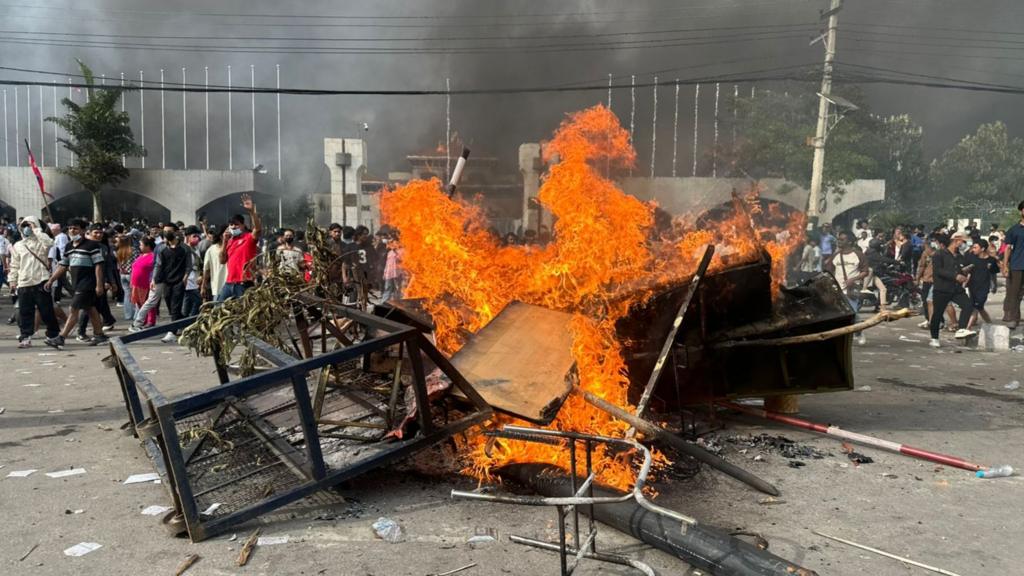By : Chinasaokwu Helen Okoro
Nepal PM Resigns Amid Deadly Protests
Nepal’s Prime Minister K.P. Sharma Oli resigned on Tuesday after days of violent anti-corruption protests that defied curfews and left 19 people dead. The unrest was sparked by the government’s ban on major social media platforms, which many viewed as censorship aimed at silencing criticism.
Oli’s government lifted the ban on Monday as demonstrations escalated, with police firing tear gas and rubber bullets to stop protesters from storming parliament. Despite this, the protests continued into Tuesday, forcing Oli’s resignation and plunging the Himalayan nation into fresh political uncertainty.
“In view of the adverse situation in the country, I have resigned effective today to facilitate a political solution in line with the constitution,” Oli, 73, said in his resignation letter to President Ramchandra Paudel. The president accepted the resignation and began consultations for a new leader.
The turmoil marks Nepal’s worst unrest in decades. Since the monarchy’s abolition in 2008, the country—sandwiched between India and China—has struggled with chronic political instability and economic hardship.
Escalation on the Streets
Protesters, many from Gen Z, set fires, hurled stones at riot police, and torched politicians’ homes in Kathmandu. Authorities shut the capital’s airport due to nearby fires and imposed an indefinite curfew, but crowds ignored the restrictions.
“This is about our future. We want a corruption-free Nepal with access to education and healthcare,” protester Robin Sreshtha told Reuters.
Local media reported some ministers had to be airlifted to safety, though details could not be independently verified.
Political Fallout
Two cabinet ministers resigned late Monday, and the Home Affairs Minister, Ramesh Lekhak, stepped down on Tuesday as the death toll mounted. Oli had earlier urged political parties to engage in dialogue but dismissed protesters’ corruption complaints as “infiltration from selfish centres.”
The demonstrations, organizers say, were fueled by online frustration over the lavish lifestyles of politicians’ families, often labeled as “nepo kids” on social media. The government’s decision to ban 26 platforms, including Facebook, Instagram, WhatsApp, and X, only intensified anger.
International Reactions
India urged dialogue and restraint, while nine Western embassies, including those of the U.S., UK, France, and Japan, jointly called on all sides to avoid further violence and respect fundamental rights.
SUMMARY TABLE
PM Resigns: KP Sharma Oli steps down amid anti-corruption protests, leaving Nepal in political turmoil.
Trigger: Social media ban on 26 platforms, seen as censorship, ignited unrest.
Protests: Gen Z–led demonstrations fueled by anger at corruption and nepotism.
Casualties: 19 killed, hundreds injured, government buildings and politicians’ homes attacked.
Government Response: Curfews, airport closure, resignations of key ministers.
International Concern: Calls for restraint and protection of rights from India and Western allies.
–


